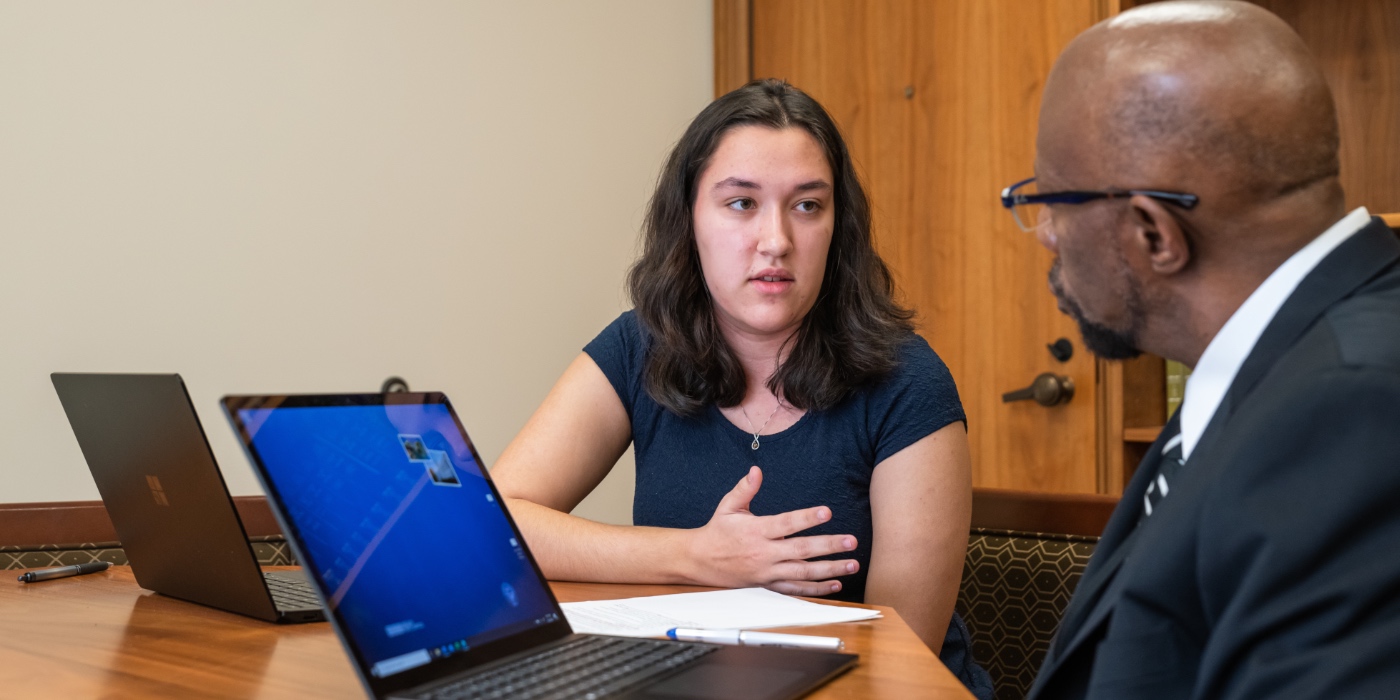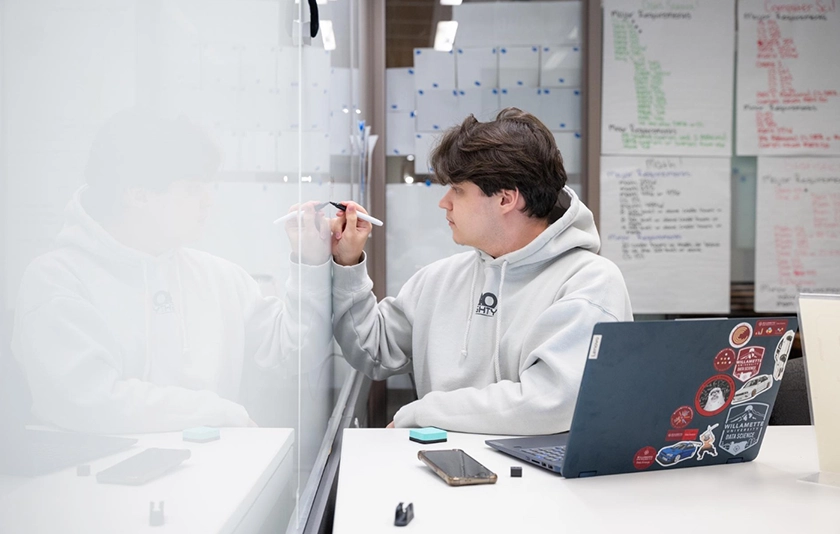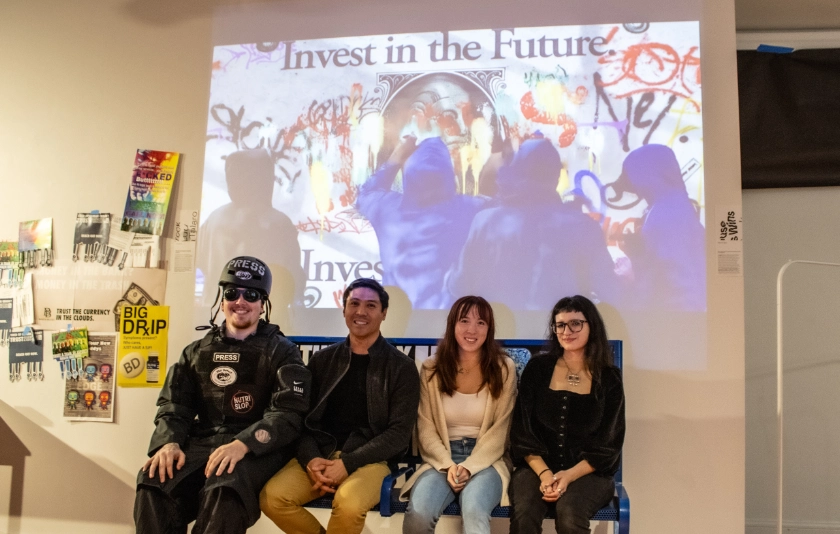Tensions are high as the 2024 election approaches. With hot-button issues dominating the headlines, conversations about politics with friends and family can feel like negotiating a treacherous path. Adding to this strain is the lingering impact of pandemic-era isolation, which has eroded social connections and exacerbated what the U.S. Surgeon General calls an “epidemic of loneliness.”
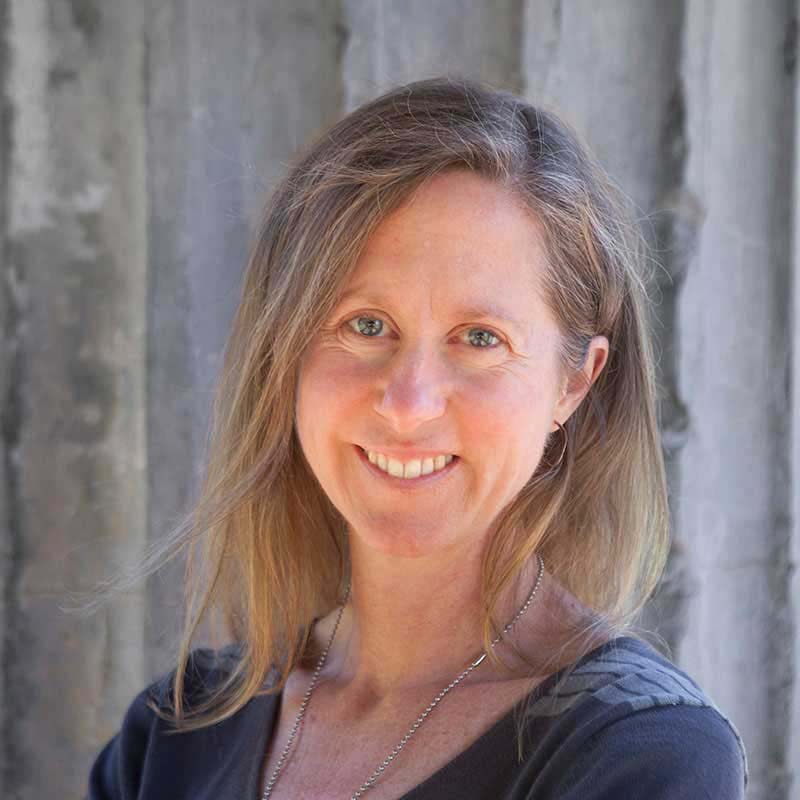
In this charged atmosphere, many find themselves struggling to engage in constructive dialogue across political lines. Through research and hands-on community work, Willamette University’s Conversation Project is modeling how to have better and more fulfilling conversations across differences. Associate Professor of History and Conversation Project Co-Founder Wendy Petersen-Boring and Research Associate Kate West BA’26 share tips for having difficult conversations during this election season.
Tip #1: Listen to understand, not argue.
Be curious. Listen actively. Try to understand the other person’s perspective, acknowledge their feelings, and avoid interrupting them. Listen to learn: in what ways will your knowledge expand, grow, or change?
Listening is fundamental, but it’s a skill that can take practice. “Just because we have ears doesn’t mean we actually know how to listen,” Petersen-Boring notes. “Especially in this time of intense polarization, we don’t see models of it in any public spaces or even really around our kitchen tables anymore.”
Tip #2: Stay grounded in your dignity.
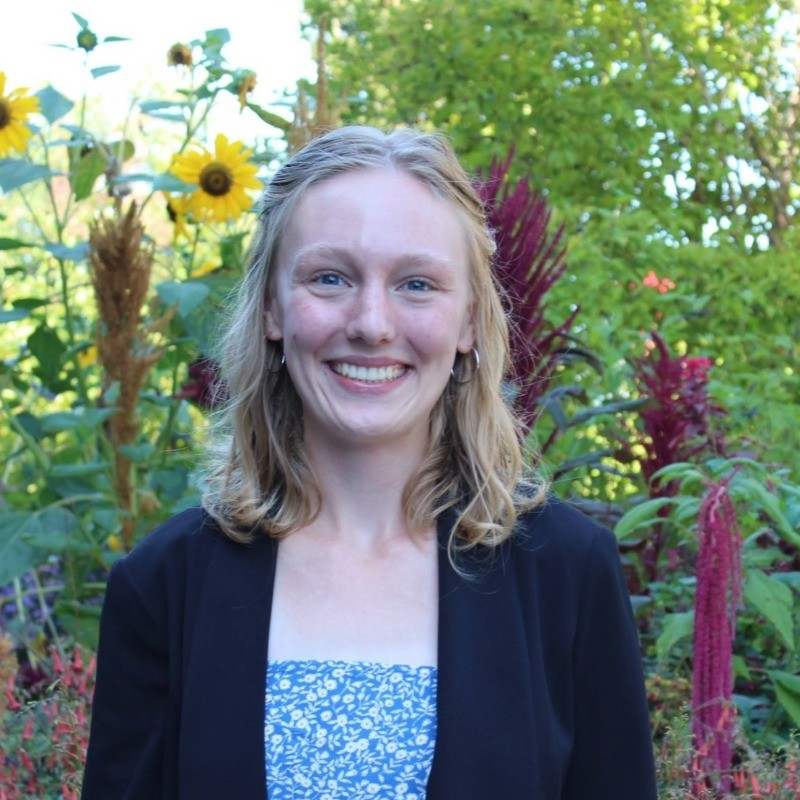
Consider this: you can have a conversation with someone who does not share your values while still maintaining your dignity. Speak from your own experiences, and refrain from making broad generalizations. Keep your comments personal, local, and immediate.
This technique was essential in the Conversation Project’s work in a small coastal town in Oregon as the community faced a contentious period of polarization and conflict. West visited the community and led town halls that brought together people with opposing views. While neither side abandoned their core values, they acknowledged their shared concern for the community’s wellbeing.
“They were able to really try to understand — even though it was uncomfortable — where the other person was coming from,” West says.
Tip #3: Remember common humanity.
Everyone has unique lived experiences and stories that shape their perceptions, beliefs, and ideologies. Try to have humility and patience with the other party — you may have more in common than you think.
The Conversation Project has used storytelling in their conflict resolution work with the community. Starting with simple prompts such as “tell me about a time when you felt like you didn’t belong” can dramatically shift the tone and dynamic of the conversation.
“The stories we share with one another are the things that weave us together,” West says. “The more we can share stories and the more we can seek to understand each other, the more we’re able to recognize common humanity.”
Tip #4: Know when to exit.
You don’t need to stay in every conversation, especially if the other person is not respectful. Simply thank the person, then leave. Exit in a way that is respectful for all parties and allows you to hold your dignity. If possible, pick your time and place with care.
“We all know the feeling in our body where we feel anger coming on or you feel your sense of control slip away,” West says. “That’s a sign the conversation needs to end or you need to agree to continue at a different time and place.”
Tip #5: Lean into discomfort where possible.
Challenge yourself to go beyond the borders of your own understanding. Remember that healthy discomfort is different from harm.
Petersen-Boring says that learning to embrace discomfort is an important part of a Willamette education and can enhance our curiosity and learning. “If you are drawn to a liberal arts education, you experience the pleasures of curiosity. Conversation is a way to be curious about yourself and others. And there’s real pleasure in that.”
Dialogue to support a healthy democracy
West and Petersen-Boring say that improving our conversational skills isn’t just about mending fences; it is essential to the health of a democracy.
“The ability to listen generously to another person is one of the fundamental glues of democracy,” Petersen-Boring says. “The loss of social cohesion skills — the ability to listen and talk with people who are different from you and to practice empathy and compassion for one another — is tearing away the fabric of our democracy. We hope that practicing these skills will help us patch it back together.”
“We feel so tired from polarization being whipped up in the current political environment,” Petersen-Boring says. “We are aching for ways to come together.”
